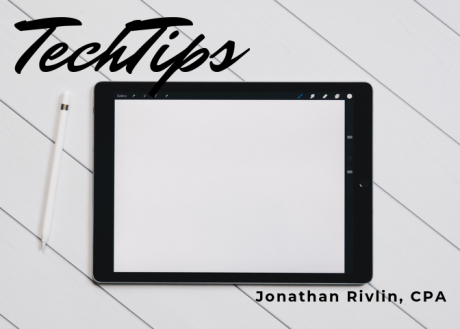
By Jonathan Rivlin
It’s been said that when your only tool is a hammer, every problem looks like a nail. For decades we shoehorned our clients into whatever accounting system (usually QuickBooks desktop) we had.
Our clients are like little snowflakes; each uniquely different and equally complex. Yet somehow we expected to fit these oddly shaped pegs into the “round hole” of QB.
By now, we’ve covered the parts of the cloud that should be in most clients’ tech stack. The true power and potential of this new way of doing business is that there are so many apps out there, and new ones are coming out all the time, that you no longer have to jam a client into something that doesn’t quite fit.
In this post, we’ll take a high-level summary of a couple of industry-specific apps: Clio & Workshop
For those clients that are auto mechanics, there’s an app based out of Australia called “Workshop”. Workshop bridges both the receivables and payables function in a single interface. (No this doesn’t violate internal control because policies can be set and enforced by both us and our client’s managers).
As an aside, two principals of working in the cloud are that every user’s action is logged and documented and that nothing gets deleted. Ever.
Workshop starts by helping the auto shop generate an invoice for the client. From that invoice, the app pulls sales price, parts codes, and sets up whether a particular item on the invoice is subject to sales tax all from a centrally maintained data file.
Once the estimate is confirmed and work is authorized, the invoice forms the basis for the parts order – flowing to the payables side. (In today’s Just In Time environment, the client doesn’t really hold an inventory anymore.)
As the client pays the invoice upon completion of the job, the payment gets recorded into Workshop – and all flow seamlessly into Xero; where it waits for the bank feed to pick up the deposit to complete the cycle. And when the bill comes in from the vendor, the parts ordered for this given job can be tagged and matched to the bill and closed out with a vendor payment (via Bill.com of course!)
This app is billed at about $50-60/month as a flat fee.
On the law firm side, there’s an app called “Clio”. Clio was created specifically for attorneys. It functions as a CRM and matters management app. Your law firm clients can enter their clients into Clio, along with their specific matters, and all sync to Xero seamlessly.
Clio (the version that includes syncing) is billed at $59/mo / user. This can get expensive for larger firms, but considering the range of features you get, it’s a compelling argument.
Clio syncs with an escrow specific app called “Trustbooks” – an app specifically and solely focused on managing compliance for IOLTA accounts. (We’ll go deeper into Trustbooks in a future post). Clio also syncs with Xero.
Now, when your attorney clients incur expenses on contingency, you can use Clio to track when they become deductible versus when they still need to be accrued. When clients receive funds on trust into their escrow accounts, an additional layer of compliance can be maintained – something that just isn’t possible with a generalized general ledger (that would be both QuickBooks and Xero – the difference is that Xero doesn’t pretend to be all things to all parties).
There are other apps, some of which we’ll detail in their own posts (specifically for contractors and builders). Further, the apps we’re using today aren’t necessarily the apps we’ll be using 5 years from now. While I hope we don’t have to change every app every year, the reality is that we need to embrace change as our constant. Dynamism and adaptability is our fixed north star.
The key take away from this particular post, after going through all the other parts of our tech stack, is that we should be proactive in looking for – actually seeking out – apps specifically tailored to our clients’ unique businesses. Let’s be the advisor that our clients expect us to be.
We’d like to hear from you! Please submit your own tech tips to us! We will award a free subscription to The Tax Book to the person who submits the best tip. Please submit your tips to this email address: techtips@msatp.org
Thanks, and catch you next time!
TT
